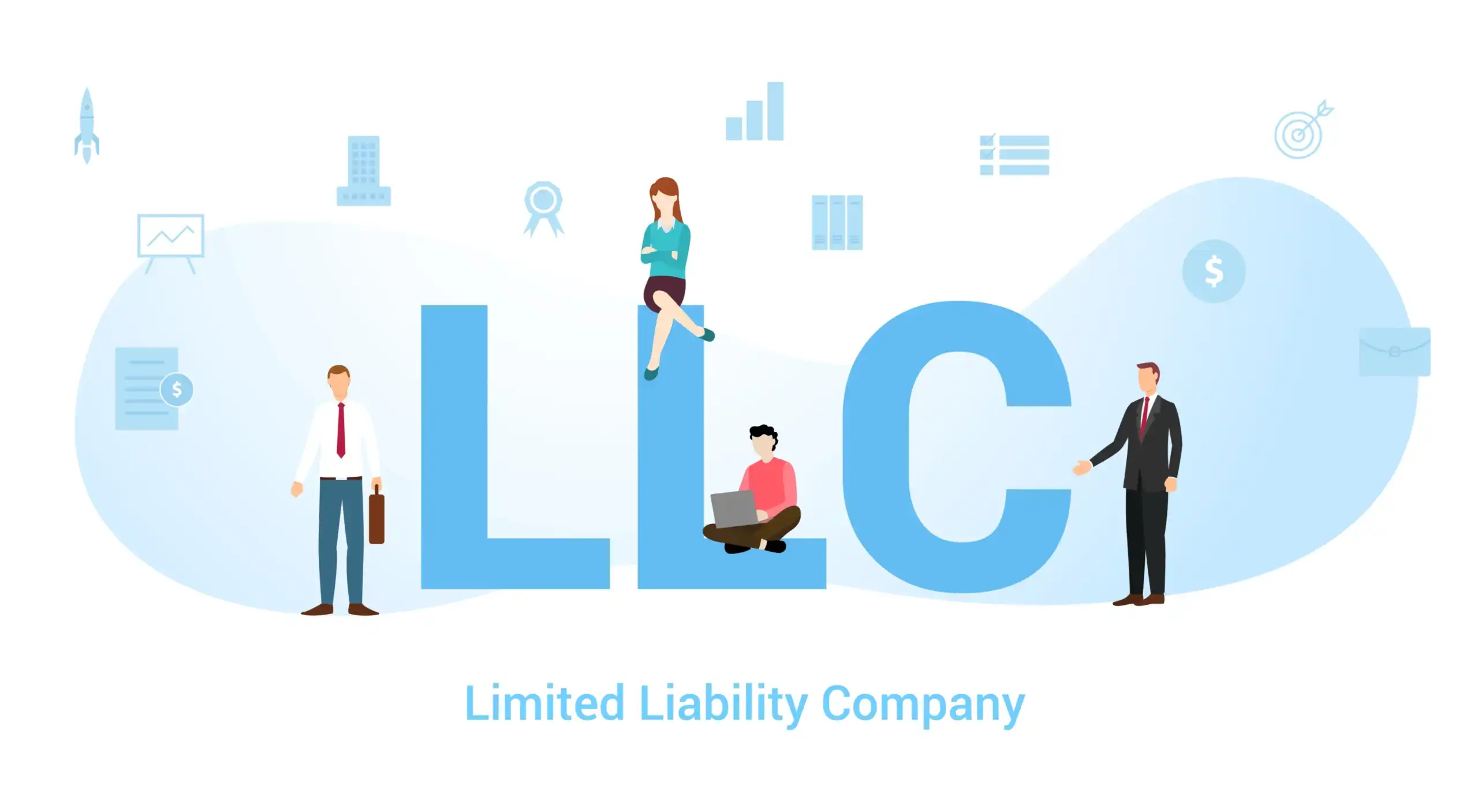Choosing the appropriate business structure is among the most significant decisions you can make in establishing a business. It influences the way you conduct your business on a day-to-day basis, the way you pay your taxes, how you raise capital and whether your own money and assets are secure in case something goes wrong.
It does not matter whether you are beginning with partners or investors or not, your structure determines the taxation, governance and security of your business. This easy guide will provide you with clear tips and professional advice to make you know what you can do and make a confident choice.
What is a Business Structure?
A business structure (sometimes referred to as a legal structure or type of business) is the way the government identifies your business officially.
- At the national (federal) level: it impacts your taxes.
- At the state level: it influences legal regulations, documentation, and the security of your personal property.
Other items determined by your business structure include:
- Is the board of directors necessary?
- What will be the taxation of your business income?
- Is it possible to protect your personal assets when sued?
What paper work will it need on your side
- The ways you can borrow money or raise funds with investors
- You must select a structure before you can register your business or do either of these: get a tax ID or license.
The Importance of Your Business Structure
Choosing an improper structure of your business may lead to a tax problem, a legal problem, or to the difficulty of expanding. You may alter your structure in the future but you may end up paying additional tax or even closing your business unintentionally. This is why it is wise to select the appropriate structure at the initial stage. Now we can examine the most popular forms of business organization, the good and bad about each one, and how each fits your business requirements.
Sole Proprietorship: Easy to Establish and Complete Control
The simplest and the least expensive form of business is a sole proprietorship. It commences the moment you start operating on your own without registering a company.
Main Features
- One person owns it
- There is no distinction between personal and business money
- Start or close very low cost
- You do pay taxes out of your own income
Good Things
- Very easy to kick off
- You are the boss and do all the decisions
- Minimal paperwork
- Is able to deduct certain taxes (such as home office or health insurance)
Not-So-Good Things
- When something goes wrong, you are to blame personally
- Less money available to investors (not able to sell shares)
- May not sound professional or official to others
Best For
Simple or low-risk business such as freelancers, tutors, babysitters or anyone who is experimenting with a small idea with low expenses.
The Well-Known Companies That Began in Such a Way
- eBay
- JCPenney
- Walmart
- Marriott
Partnership: Part Work Part Profits
Partnership refers to a situation where two or more individuals are doing business together. They are of various types:
- General Partnership (GP): Sharing work and risk by everyone.
- Limited Partnership (LP): There is a single operator and other investors contribute less risk.
- Limited Liability Partnership (LLP): All are partly insulated against risk.
Main Features
- Decisions and profit sharing
- Every individual pays tax on his or her share
- Requires a written contract
Good Things
- Not difficult to begin
- You share labor and money
- Loans are easy to access compared to working in isolation.
- No corporate tax, only individual tax
Not-So-Good Things
- You are a shareholder (but not in LLP)
- Disputes may occur
- Contract required
Suited To
Co-founders, small groups or teams, or individuals who work together such as lawyers, doctors, or consultants.
Famous Partnerships:
- Warner Bros.
- Microsoft
- Apple
- Ben & Jerry’s
LLC (Limited Liability Company): Safe and Flexible
An LLC provides you the legal protection of a corporation, but is simpler to operate. It combines the best of partnerships and corporations.
Main Features
- Flexible structure
- Owners may be individuals or companies
- Protects your personal wealth
- You decide how you are to be taxed
Good Things
- Saves your own money securely
- You are allowed to choose your tax type
- Less paper work than a corporation
- May be owned by one or more people
Not-So-Good Things
- You might be liable to pay self-employment tax
- In others, the business dies when an owner walks away
- Regulations and prices vary by state
Best Suited
New companies, expanding companies, or individuals seeking protection and flexibility in the law.
Famous LLCs
- Nike
- Sony
- Pepsi
- IBM
- Anheuser-Busch
Corporation (C Corp): Big Growth Friendly
A C Corp is a different legal company. It is capable of making contracts, being sued or possessing property. Perfect when you are a big company or when you are seeking funds.
Main Features
- Independent of its owners
- Pays self taxation
- May be owned by an unlimited number of people (shareholders)
- Good legal safeguards to the owners
Good Things
- Accessible investment
- Owners can leave but business continues
- Appears more professional
- The risk of the owners is restricted
- Is able to provide stock to recruit workers
Not-So-Good Things
Pays tax twice (on income and dividend)
A lot of paperwork and regulations
Requires a board of directors
Bests For
Large companies, or new projects in search of serious capital.
Well-known C Corps
- Amazon
- General Motors
- JPMorgan Chase
- Domino’s Pizza
S Corporation: No Duplicate Taxes
An S Corp is a normal corporation which elects to use special tax provisions to prevent paying tax twice. The profits are paid directly to personal tax of the owners.
Main Features
- A maximum of 100 owners (must be U.S. citizens or residents)
- Owners protection under the law
- Owners are taxed, not the company
Good Things
- There is no double taxation
- There is protection of personal assets
- Even when the owners change business can proceed
- Proprietors are able to draw salary and profits
Not-So-Good Things
- Additional IRS regulations
- U.S. owners only were permitted
- Has to maintain strict rules to remain an S Corp
Best Suited To
Small or medium-sized businesses that desire protection and easy taxes.
Benefit Corporation (B Corp): Purposeful Business
A B Corp is a business that is driven by profit, but is also concerned with people or the planet.
Main Features
- Accepted in most of the states in the US
- Pays taxes C Corp
- Have to report the benefit it brings to the society
Good Things
- Creates credibility with the populace
- Believes in social and environmental causes
- Attracts similar minded investors
Not-So-Good Things
- B Corps are not permitted in every state
- Additional reporting and paperwork
Example
The Body Shop- advocates fair trade, against animal testing and environmentally friendly products.
Nonprofit Corporation: Service to Others
A nonprofit is created with the purpose of helping people, not gaining profit. It may be charity, educational, religious or scientific.
Main Features
- Is unable to share profits with owners
- Has to apply as a tax-exempt organization (501(c) (3))
- Has to observe special regulations
Good Things
- Do not pay federal or state income tax
- Is able to get donations and grants
- Nonprofits are trusted by people
Not-So-Good Things
- Personal gain cannot be done through profits
- Should be strict with the rules
- Should be well documented
Famous Nonprofits
- Red Cross
- Salvation Army
- American Heart Association
Cooperative – Managed by Its Members
The people who utilize the services of a cooperative own and manage it. Each one gets a vote and a share of the profits.
Main Features
- Members purchase a share to become a member of the cooperative.
- Each individual = one vote
- May obtain grants and discounts
Good Things
- Distribution of profits with members
- Decisions are made with the help of members
- Special financing programs offered
Not-So-Good Things
- Less easy to begin
- Slower decision making as everyone votes
Famous Co-ops
- REI
- Land O’Lakes
- Ace Hardware
- Navy Federal Credit Union
Considerations in Selecting Business Structure
The way you set up your business must assist you to develop and achieve your long-term objectives. Some of the easy things to consider are:
Flexibility
Can you expand, bring in partners or new investors with your arrangement? In case of yes, an LLC or corporation would suit you better.
Simplicity
Partnerships and sole proprietorships are easy and fast to establish. Corporations require more time, paperwork and money to operate.
Personal Protection
LLCs and corporations save your personal finances and assets in case the business is in trouble. Partnerships and sole proprietorships do not.
Taxes
- Taxes are paid by the sole proprietors and partnerships using their personal income.
- LLCs have the option of selecting their taxation preference.
- Corporations are taxed separately on business income (C Corp) or distribute profits to owners (S Corp).
- The IRS has to approve nonprofits so they can avoid taxes.
Control
Choose a sole proprietorship or single-person LLC, in case you need complete control. Decisions are collective in partnerships or corporations.
Getting Money
Sale of shares is one way through which corporations can raise funds. Personal savings or loans are common in LLCs and partnerships.
Licenses and Permits
Various types of businesses require varied paperwork and authorization. Whatever is necessary in your city or state should always be checked.
Conclusion
In The Finance Focus, we are of the opinion that there is no ideal business structure that fits all. The most appropriate decision is based on what your business requires at the current moment and what you would like it to become in the future. Questions as simple as:
- Is business risk protection necessary to me?
- Do I want investors?
- Which type of taxes do I prefer to deal with?
- Would I prefer to keep it simple or am I able to do more paperwork?
Before making a decision, it is a good idea to consult a legal or financial expert. And as you expand your business, you may have to alter your arrangement in the future. Selecting a proper structure today may assist your business to develop in the proper direction. Allow our experts at The Finance Focus to assist you to choose the most appropriate structure to succeed.






